- Learning time
- 30 minutes
- First play time
- 90 minutes
Noli
Designed by: Alessio Cavatore,Jack Caesar
If Noli‘s box suggests a gentle experience of medieval trade and influence, be warned: this game can be both brutal, and manic. Frequently at the same time.
The goal is to be the player with the highest tower at the end of the game, which occurs either when someone stacks the sixth block on their tower, or someone reaches the end of the influence track. But we’re getting ahead of ourselves, because Noli is – mostly – a bidding game, so we should talk about bidding.
Everyone begins with some cash and in each round of the game we’ll all bid – secretly, behind our screens – on four different things, which are then revealed and resolved from left to right. The first is the right to push your piece up the influence track, which is a tie-breaker for both bidding (important!) and potentially, the winner of the game later if there’s more than one tallest-tower. Then we resolve the highest bid for oarsman and boats – relevant for the coming boat race, and to be explained below – before finally the highest bidder on towers gets to add another block to their tower. Then… after everyone loses the money they bid, the race begins!
Each round in Noli has a boat race, which consists of all players rolling all their dice at the same time until they have each die with an oarsman symbol face-up. This part of the game is fairly frantic, but you can take some pressure off yourself by presetting dice to the symbol you need – this is the purpose of the oarsman bid in the auction. As players ‘finish’ the race, they’re encouraged to shout the family names of Noli’s player colours: Ciassa! Maina! Burgu! Portellu! The first to finish will take cards from the juicy I stack, second place from the II stack and so on down to the paltry IV cards, and how many cards you take is equal to how many boats you own – which is why bidding for extra boats can be very helpful! Everyone begins with two, but you can potentially have as many as four.
The cards are revealed and, most often, simply tell you how much money you’ll have in the next round. But sometimes they’ll allow you to sink an opponent’s boat, or tell you to destroy some of the city defences (see the walls in the pictures), representing attacking Saracens. However, if all the defences have been destroyed, then you remove a block from someone’s tower instead!
What this all equates to is a feisty game of second-guessing and brinkmanship where figuring out your opponent’s intentions is as important as knowing your own – along with a bananas, manic, dice-chucking boat race every round.
The guru's verdict
-
Take That!
Take That!
Yep, you can be outbid, have your boat destroyed, tower knocked down and come last in a frantic real-time race. Signing up for Noli means signing up for slings and arrows and taking them with equilibrium - or if not that, then some good-natured cussing.
-
Fidget Factor!
Fidget Factor!
Very, very low. Bidding is simultaneous, the boat race is very much the same, if not more so.
-
Brain Burn!
Brain Burn!
The rules are pretty simple. The challenge with Noli is trying to parse some kind of tactical progress and give the chaos a sense of organisation.
-
Again Again!
Again Again!
Possibly not on the same night? But if you like the slightly deranged air of the game, there's guaranteed random factors for sure, and the joy of correctly guessing what someone will do - and undoing it.

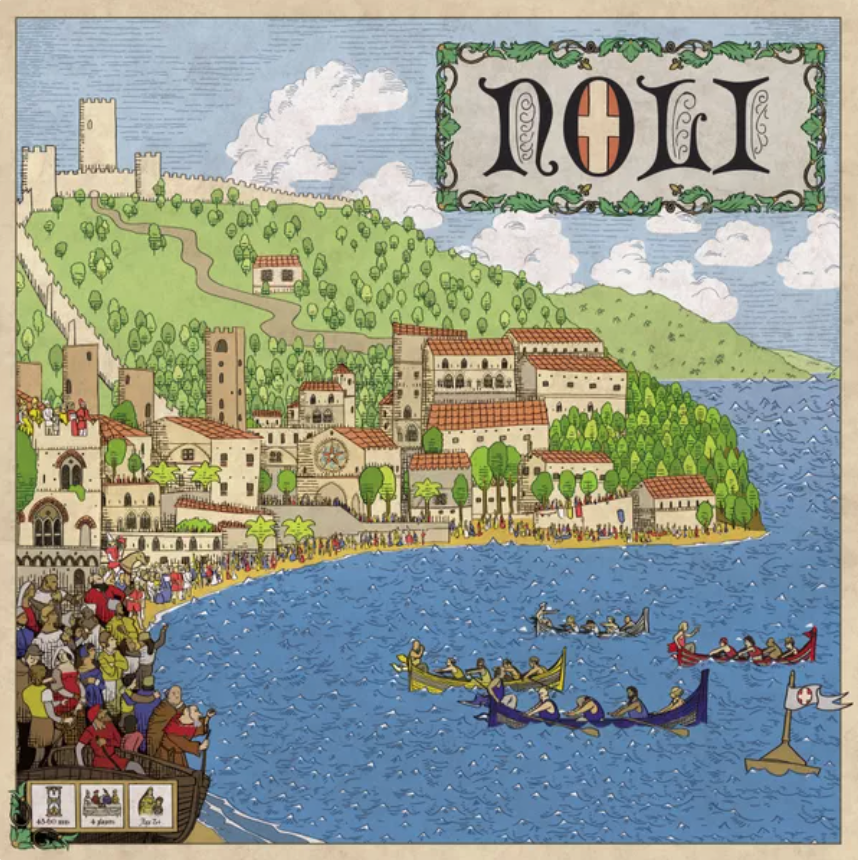
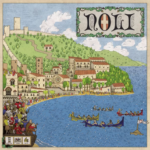
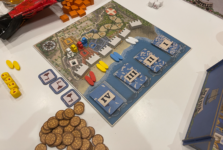

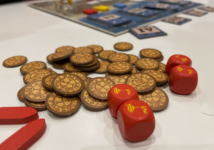
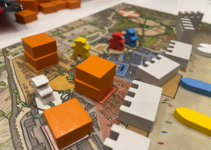


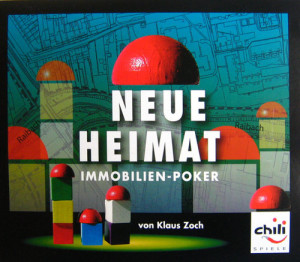

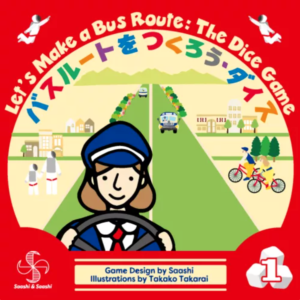
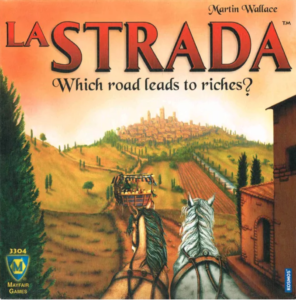

Sam says
Somewhere between screwball fun and arbitrary chaos lies Noli, its jigsaw-friendly artwork belying the actual game experience, which is boisterous, belligerent, and occasionally brutal. Bidding sounds passive, but the fact all bids - including the losing ones - are paid for means some rounds you can find yourself ousted from any action at all - except the race, where those damned dice just won't do what you want! For some, this'll feel too random, too lacking in control. But others will enjoy its rather quirky charms, and I'm in the latter camp myself. In a world where lots of games are very reminiscent of others, Noli feels different, and all the better for it.